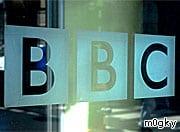The BBC’s coverage of controversial topics such as religion is to be reviewed amid ongoing concern over its impartiality.
Critics have long accused the broadcaster of displaying a liberal bias.
Now, following criticism, the accusation will be investigated by an independent review of the corporation’s coverage.
Impartiality
The review, which will also look at immigration and the European Union, will assess whether the BBC is doing “all it can” to ensure impartiality.
The review will be led by former ITV executive Stuart Prebble. He will examine whether decisions to “include or omit perspectives in news and current affairs coverage have been reasonable and carefully reached”.
Speaking to the Broadcasting Press Guild on Wednesday Lord Patten, chairman of the BBC Trust, said: “It’s an acceptance that these are areas where people are particularly concerned that we should get it right.
Criticised
“We’ve been criticised in those areas and we think it’s very important to listen to that criticism, not necessarily because it’s right but because it reflects real and interesting concerns.”
In a statement, the BBC Trust said: “The review will focus on the BBC’s news, current affairs and factual output.
“The content analysis will include an analysis of the BBC’s coverage of immigration, religion and the EU, by comparing some coverage from 2007 with coverage from 2012/13.”
Elite
The results of the review will be released next year.
A previous report on the issue from 2007 described a “largely unconscious self-censorship” that resulted in certain opinions being under-represented.
In September Roger Bolton, former Sunday programme host, said a “liberal secular elite” are dominating television.
Bygone
Earlier in the year one of the broadcaster’s former newsmen warned that institutionally, the BBC doesn’t much care for evangelical Christians.
Dennis Sewell worked for more than 20 years at BBC News and says the corporation views “religious faith” as “a hangover from a bygone age”.
Writing for The Telegraph, he says there are “certain people and things that the BBC institutionally doesn’t much care for”, including “evangelical Christians”.

